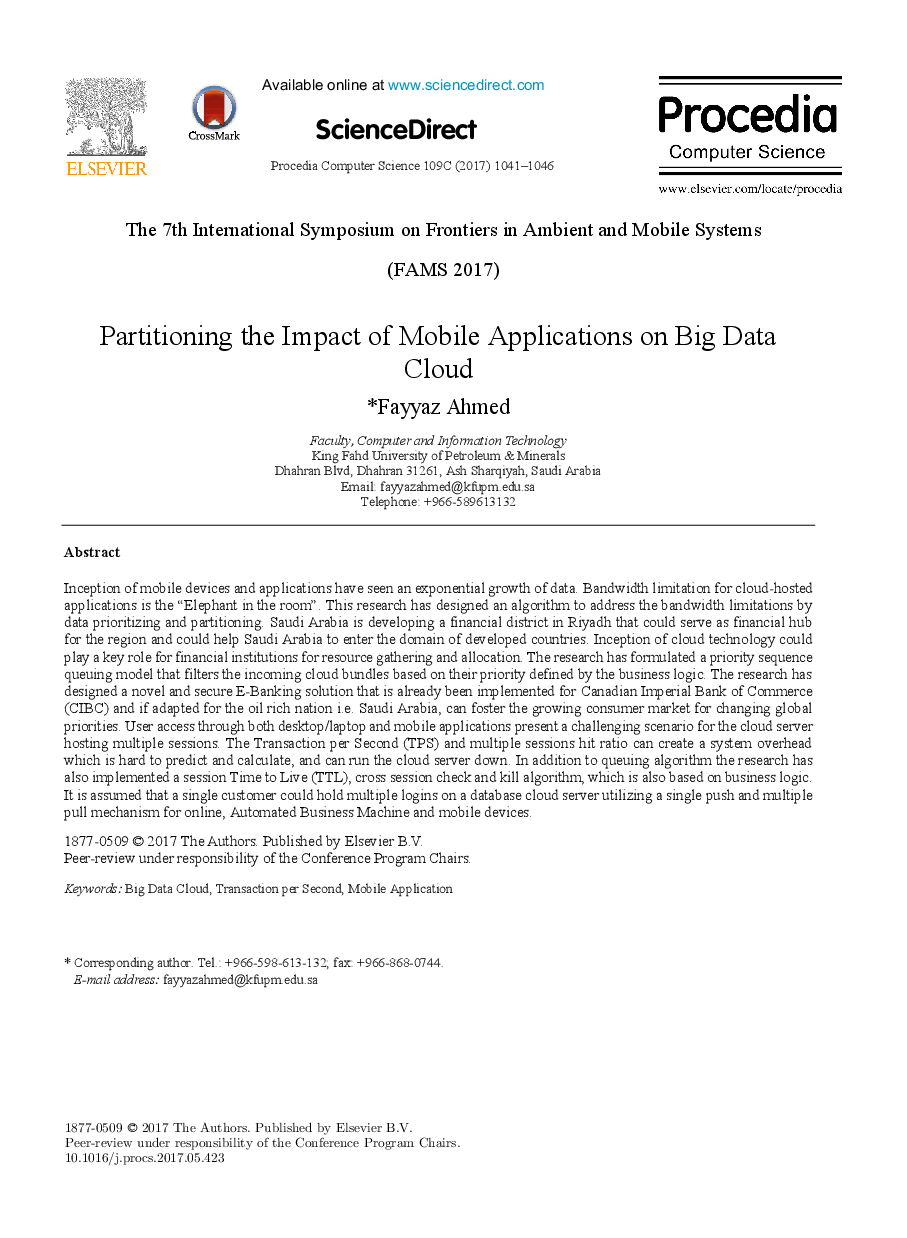ترجمه فارسی عنوان مقاله
تقسیم بندی تاثیرات برنامه های موبایل بر روی ابر داده های بزرگ
عنوان انگلیسی
Partitioning the Impact of Mobile Applications on Big Data Cloud
| کد مقاله | سال انتشار | تعداد صفحات مقاله انگلیسی |
|---|---|---|
| 82655 | 2017 | 6 صفحه PDF |
منبع

Publisher : Elsevier - Science Direct (الزویر - ساینس دایرکت)
Journal : Procedia Computer Science, Volume 109, 2017, Pages 1041-1046
ترجمه کلمات کلیدی
ابر داده بزرگ، تراکنش در ثانیه، برنامه موبایل
کلمات کلیدی انگلیسی
Big Data Cloud; Transaction per Second; Mobile Application;

